Welcome to the
Institute on the Catechism
~ (Eph 4:15-16)
What is Evangelizing Catechesis?
At the heart of the Church’s mission to all people, an evangelizing catechesis seeks to deepen a personal encounter with Jesus Christ through the power of the Holy Spirit:¹
+ It proclaims the core message of the Gospel, the kerygma;²
+ It accompanies people to a response of faith and conversion to Christ;³
+ It provides a systematic exposition of God’s revelation within the communion of the Catholic Church;⁴ and
+ It sends out missionary disciples as witnesses to the good news of salvation⁵ who promote a new vision of life, of humanity, of justice, and of human fraternity.⁶
1 The Directory for Catechesis (DC) offers a more expanded description in paragraphs 55 and 56.
2 Cf. DC, 2: The kerygma “manifests the action of the Holy Spirit, who communicates God’s saving love in
Jesus Christ and continues to give himself so that every human being may have the fullness of life.”
3 Cf. DC, 3: The process of accompaniment leads to an internalizing of the Gospel which “involves the whole
person in his unique experience of life.”
4 Cf. DC, 4: “The act of faith is born from the love that desires an ever- increasing knowledge of the Lord
Jesus, living in the Church.”
5 Cf. DC, 4: “All believers are active participants in the catechetical initiative…and because of this are called
to become authentic missionary disciples.”
6 Cf. DC, 60: “Since ‘the kerygma has a clear social content’…the efficacy of catechesis is visible not only
through the direct proclamation of the Lord’s Paschal mystery, but also through its revelation of a new vision
of life, of humanity, of justice, of social existence, of the whole cosmos which emerges from the faith and
which makes its signs concretely present.”
Frequently Asked Questions
What is the Insitute on the Catechism?
The Institute on the Catechism is a work established by the United States Conference of Catholic Bishops’ Committee on Evangelization and Catechesis and the Subcommittee on the Catechism. The primary goal is the accompaniment of Catholic catechetical publishers, Bishops, diocesan leaders and others who lead in the work of catechesis to reimplement the Subcommittee on the Catechism’s mandate to oversee the use of the Catechism in catechetical resources developed in United States. This is a service to the Church of the United States and is especially relevant as the Institute on the Catechism works to help foster an evangelizing catechesis in the United States according to the guidance of the 2020 Directory for Catechesis.
What are the goals of the Institute?
1. To follow the vision of "evangelizing catechesis” as set forth by the Committee for Evangelization and Catechesis and the Subcommittee on the Catechism, following the guidance of the Directory for Catechesis.
2. To accompany Bishops in their work as the chief catechists in their dioceses.
3. To accompany Diocesan directors, Instituted Catechists, those who oversee catechist formation, those who oversee Catholic education, those who oversee priestly and diaconate formation, and all involved in the work of catechesis who are at the service of their Bishop, to discover and support effective methods of proclaiming an evangelizing catechesis in their dioceses.
4. To accompany catechetical publishers in the development of materials that are kerygmatic, evangelizing, and faithful to the teaching of the Catechism.
5. To work for a cultural shift in the field of catechesis towards a culture that supports and facilitates evangelizing catechesis.
6. To develop a greater inculturation in catechetical formation, especially for Spanish-speaking audiences in the United States.
7. To sustain ongoing formation for the various collaborators in the Institute.
Whom does the Institute serve?
The Institute on the Catechism is of service to the Church in the United States, by accompanying those who create catechetical materials in their work through the Catechetical Accompaniment Process (CAP), and by accompanying those who use these resources in the catechetical field, such as the bishops, diocesan leaders, superintendents, and other catechetical leaders.
Who participates with the Insitute?
Key collaborators with the Institute include:
Bishops
The bishops of the United States, who are the chief catechists of their dioceses, are the first collaborators in the work of the Institute on the Catechism, as they work to lead their dioceses in growing in an evangelizing catechesis.
Diocesan Leaders in Evangelizing Catechesis
Those who support the bishops in their work within their dioceses are also key collaborators. This includes: diocesan directors of evangelization, Christian formation, catechesis and other relevant ministries; those who are responsible for the formation of priests and deacons; Instituted Catechists and those who will become Instituted Catechists; those who oversee Catholic education, such as diocesan superintendents; and diocesan censors.
Catholic Publishing Community
Those in the Catholic catechetical publishing community are also key collaborators, as they are leaders in the development of catechetical materials. This can include publishing heads of house, editors, writers, and theological consultants.
Other Leaders
Other leaders in the formation of catechetical leaders, including institutions of higher education such as Franciscan University of Steubenville and The Catholic University of America.
